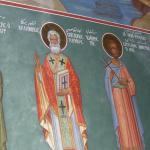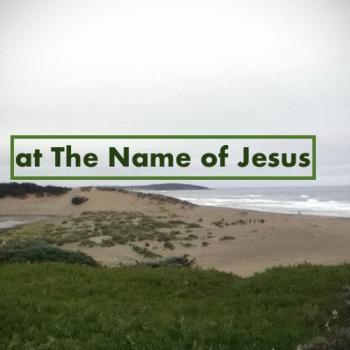
I opened up the word directly to Ezra the other day. For some this may be a surprise, however Ezra-Nehemiah is oft considered one complete work, since the two are working in tandem. I would add the possible stories of the N. Kingdom peoples, although I am not truly well-versed in those stories and it would possibly require an intratestamental course.
Nonetheless, I can scroll through the stories in my mind, ones of at least three people groups related in some ways, if not distant cousins, one may say. Skipping ahead to the New Testament, there is quite a consensus John wrote all of his own works, and also a community formed from his disciples headquartered in Samaria proper. Of course there are contrary opinions stemming from the West Coast of modern day Turkey.
To date, I have found no opinions about Samaria I can discuss outside of grad school course walkthroughs. I’ll take one glance into Johannine histories and become mesmerized because of the lore, sorry. I may never discover what region of Samaria the Johannine community stems from.
There seems to be groups of Disciples like Thomas who may have very well at least made it to the Persian area in the NE area of Turkey. Of course there is the great debate over whether or not Paul went to Spain before or after his declaration. Someone in professional sports told me I would really like the East Coast of Spain, as has a priest or two of different faiths. I guess we’ll never know how those traveling groups operated, and there seems to be considerable evidence Mark worked with some Christians and God-Fearers near Alexandria.
In the same way, one may not like the readings I’ve participated in, although I have attempted to devote the last 20-30 minutes per day to them. One of the reasons is these readings are certainly labeled pre-reformation, perhaps a little dark, but there is considerable question about the likes of Charlemagne and others who bore a Christian standard also. The pendulum continues to be pulled back and forth, not because of gravity, but because we’re making gravitas out of molehills. In a similar vein, Paul writes against myths and old wives tales in his Pastoral Epistles, but that never really works out too good for the people of God. Perhaps his zeal is evident throughout his life; we’re all human.
So what of Dante, and what of the readings here?
Is Dante ascending the planetarium in a manner of speaking?
Is Beatrice still giving her best as a guide?
After all Virgil has led Dante through right up and into Paradisio. The only reason I’ll take one moment to offer this Saturday Evening Post is because I have had a new idea.
What if the whole story is similar to the stories of the Disciples who are difficult to track throughout the known world after the Great Commission?
Why are they difficult to track?
Not everyone has dual-citizenship like Paul, groups of tradesmen and women, and an ability to speak to the situation with the govt. officials, perhaps even to the point of declaring, “I will have safe passage to the Tarshish areas or anywhere in Espana.” Not everyone can even afford citizenship.
What can Dante afford regardless of the political undercurrents one may think I’m adding, because I’m most certainly not adding any?
Can he afford to risk what he has known in Italy for some advanced rites of passage so to speak?
Questions are left unanswered as I press onward, although some of the reading group is already off to Tatooine, perhaps not far from the whole peninsula where an ancient Alexandria could be. Of course, there could be other names for cities, just like there are other Christian names. Mythological Hermes to Christian Hermes and Hermas; neither may be The Shepherd of Hermas. Clement may not be the overseer of Rome shortly after an apostle and an evangelist. However, out of all the extra, extant writings when Canon was forged, The Shepherd of Hermas had a tremendous chance of being included. It is very primitive, but it’s probably only related to a second or third generation writer who took the adopted Christian name Hermas. No one should read it, and someone I respect cautioned me, because it is too revelatory.
So too with Dante the Pilgrim vs. Dante the Poet.
Is he in a metamorphosis as I’m suggesting some of the Disciples are, weaving metaphors untraceable from histories?
He is already published.
Is he prophesying like The Shepherd of Hermas?
Is Hermas a female shepherdess?
At this point in my life I have started the book multiple times, but I have realized it’s a very deep read, so I really don’t know. I’ll take one chapter or two at a time, then keep putting it back up on the shelf to read later.
As for the visual and the points above, I really like the presentation because it reminds me of Orthodox, if I can say so in a cataphatic statement. I guess it could be.













